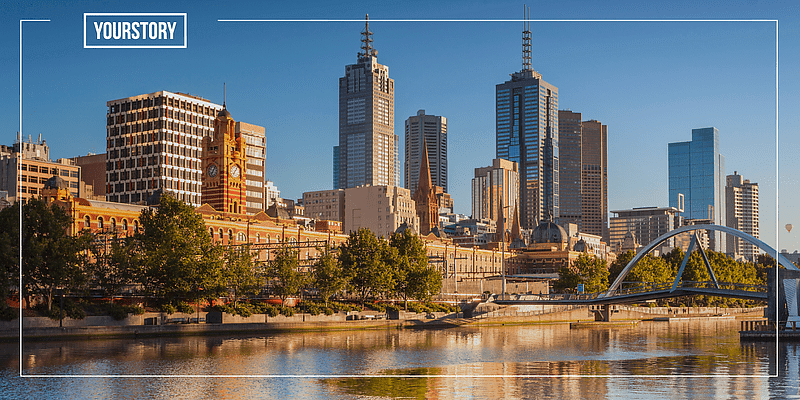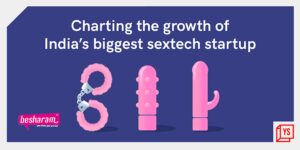The Australian state of Victoria is home to at least 11 unicorns with a combined market capitalisation of more than $40 billion. These include Real Estate Australia Group, Carsales.com, Seek, Airwallex, MYOB, Aconex and Envato. In addition, global tech leaders including Zendesk, Amazon, and Square, have all chosen to establish a regional headquarter in Melbourne.
Opportunity in a rapidly expanding market
Victoria is increasingly becoming a much sought-after destination for digital technology companies and startups in the Asia-Pacific. Judy Anderson, CEO of Startup Victoria, Australia’s largest network for entrepreneurs, says, “Relative to other ecosystems in the world, the Victorian startup ecosystem is certainly by no means the biggest or the richest, but we are one of the fastest-growing ecosystems in the world.” She points to the fact that Startup Genome ranked Melbourne as one of the top 35 fastest growing ecosystems on the global stage. However, Judy underlines that the Victorian startup ecosystem is relative “infant” compared to the largest counterparts like that in Silicon Valley, Tel Aviv or London.
“Today, Startup Victoria is a community of 60,000+ entrepreneurs and startup enthusiasts. But, it began with a dozen passionate entrepreneurs meeting on a Friday night over beers in one of Melbourne’s first co-working spaces, Inspire9, back in 2014.” This journey from over a dozen to a 60,000+ strong community has been driven by Victoria’s startups that achieved success early on and went on to become Unicorns, explains the CEO. These businesses achieving scale in a short span has paved the way for high-calibre tech and entrepreneurial talent joining the ecosystem. And, in turn these talents have been giving back to the ecosystem by mentoring and advising other entrepreneurs. All of which have helped in accelerating the maturity and diversity of the types of businesses, says Judy.
The early days of Victoria’s startup ecosystem witnessed a predominance of marketplace and SaaS startups, but over the years the ecosystem grew much broader. Today, Victoria has a high density and maturity of startups in the health and life sciences sector, edtech, fintech, agritech, cybersecurity, among others. The state’s fintech sector is leading innovation in banking and payments, credit and lending, insurance and wealth management with 330+ fintech startups. Three of the five Victorian fintech unicorns – Airwallex, Judo Bank and Afterpay Touch – are among the world’s top 100 fintech innovators. Home to a quarter of Australia’s farm businesses, Victoria’s thriving agtech sector is at the forefront of an industry predicted to be worth A$100 billion by 2030.
‘Favourable’ for startups
Victoria’s growth as a global startup ecosystem has been driven by a number of factors, says Judy. The quality and a large pool of talent across key tech areas has been a big draw, the other has been the state government’s interest and commitment to enabling ecosystem growth. “The state government has taken interest in developing the startup and tech ecosystem through investments and policy creation aimed at enabling businesses to grow quicker. Through encouragement via foreign investments for businesses, we are making it easier for startups to raise capital,” she says.
LaunchVic, Victoria’s startup agency was instituted with the sole purpose of growing the state’s startup ecosystem by investing in organisations and projects that support startups to scale innovative companies. “LaunchVic has enabled millions of dollars of funding. This includes the $120 million Victorian Startup Capital Fund (VSCF), a fund of funds announced in the Victorian budget earlier this year,” shares Judy. The fund aims to support Victorian early-stage technology-based startups with potential to grow into high-performing businesses. In addition, LaunchVic has been instrumental in the launch of dozens of new accelerator programmes, entrepreneur-in-residence and talent programmes which have helped many early-stage startups and young entrepreneurs. The visa waiver programme, tax incentives and financial grants for R&D related activities, and commercialisation grants by the Australian government also act as force multipliers for startup growth.
While the availability of talent across specialisations, pro-startup policies and investments have been key factors, the other has been the ‘connectedness of the ecosystem.’ “The Victorian startup ecosystem is a well-connected space. We see a lot of founders helping and learning from each other. This helps in mapping talent and addressing symbiotic challenges,” says Judy. The COVID-19 pandemic has also brought about a push in the increase in talent taking the entrepreneurial route. “Today, lots of people are starting businesses and creating high-value tech solutions to some of the biggest problems that we’re facing in our day-to-day lives across the world,” she says.
Scope of market opportunity
Sure, Victoria’s burgeoning startup ecosystem and its favourable policies present a viable opportunity for global startups to venture into the local startup ecosystem in Australia. In addition, it brings access to consumers. “It could work as a great secondary market for global startups,” shares Judy.
In 2019, the A$3.8 billion Australian fintech sector saw 252 percent growth in fintech investment. One in 10 Australians used a Buy Now Pay Later (BNPL) product and two in every three payments at point of sale were contactless payments – a clear indication of high affinity for innovative fintech solutions in the Australian market. With more than 40 percent of consumers yet to become fintech adopters, the market is predicted to grow further to $18 billion by 2030 according to Frost and Sullivan. In addition, Australia has regulatory settings that favour fintech adoption. The Australian Securities and Investments Commission’s (ASIC)’s Enhanced Regulatory Sandbox allows fintech companies to test their services for up to 24 months without an Australian financial services licence or credit licence. All of this points towards the opportunity that global fintech startups can explore in Victoria.
The edtech sector is yet another example that makes Victoria the perfect testbed for innovation for homegrown and global startups. With an international education sector worth over $13.7 billion, education has been Victoria’s largest services export industry for over a decade, delivering global products that are transforming learning and consistently boosting the state’s edtech revenue. Victoria is home to 33 percent of Australia’s dynamic edtech companies, supported by a significant spike in investment since 2019, including Seek’s A$118.5 million investment in joint venture partner Swinburne University. The Victorian Government has invested A$10.8 billion across the education sector over the past four years.
Interestingly, Melbourne’s success story began with the gold rush of the 1850s and 1860s, when it was one of the largest cities in the British Empire and one of the wealthiest in the world, earning the moniker of ‘Marvellous Melbourne’. Over the years, Melbourne developed into a diversified economy. The mid-20th century saw it developing into a thriving industrial hub. The late 1990s saw the city establishing its servicing and advanced manufacturing prowess. The early 2000s saw Melbourne making its mark as a knowledge city with its thriving education sector. And, now clearly as the startup capital of Australia, it is becoming a global destination for startup growth and innovation. Judy says, “Today, even though our startup ecosystem is small on the world stage, it’s mighty.”
For more information on Melbourne’s startup ecosystem, follow startup Victoria on Twitter and LinkedIn. You could also sign up for a free membership to receive its weekly community newsletter.










